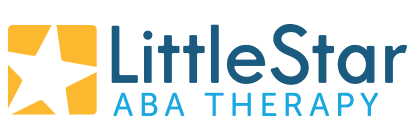ABA therapy and insurance: What you need to know
Many families with children affected by autism are currently reviewing insurance options during the Affordable Care Act open enrollment process. Here are four things to keep in mind as you consider ABA therapy and insurance:
ABA therapy insurance coverage is different with each policy. Coverage is dependent on whether your employer is self-funded or fully funded. Your prospective ABA center should contact your insurance provider to determine if ABA therapy is a covered benefit and what co-insurance/co-pay is applicable to your policy. Little Star Center accepts most insurance plans and, with the assistance of our family services director, works closely with families to address policy issues.
If your insurance plan does not cover ABA therapy, we encourage you to speak to an insurance broker familiar with the treatment and specific insurance need. It is important to work closely with your prospective center and insurance broker during open enrollment to ensure adequate coverage. Please remember open enrollment closes Jan. 31, 2016. After this deadline, insurance policies and rates are locked in until the next enrollment cycle.
Once insurance coverage is verified, your child’s start date for enrollment will be set. At Little Star Center, we have a step-by-step process that takes two to three weeks to complete and will ensure insurance coverage is in place for services.
If you do not have insurance, please contact an insurance broker who can assist you with options for ABA therapy coverage.
Remember these important dates during open enrollment:
- December 15, 2015: Last day to enroll in or change plans for new coverage to start January 1, 2016
- January 1, 2016: 2016 coverage starts for those who enroll or change plans by December 15
- January 15, 2016: Last day to enroll in or change plans for new coverage to start February 1, 2016
- January 31, 2016: 2016 Open Enrollment ends. Enrollments or changes between January 16 and January 31 take effect March 1, 2016
To learn more about ABA therapy and insurance coverage, visit the following websites:
Written by Victoria Blessing-Wade, Family Services Director at Little Star Center. Email Victoria at [email protected] with any questions about enrolling at Little Star Center.

